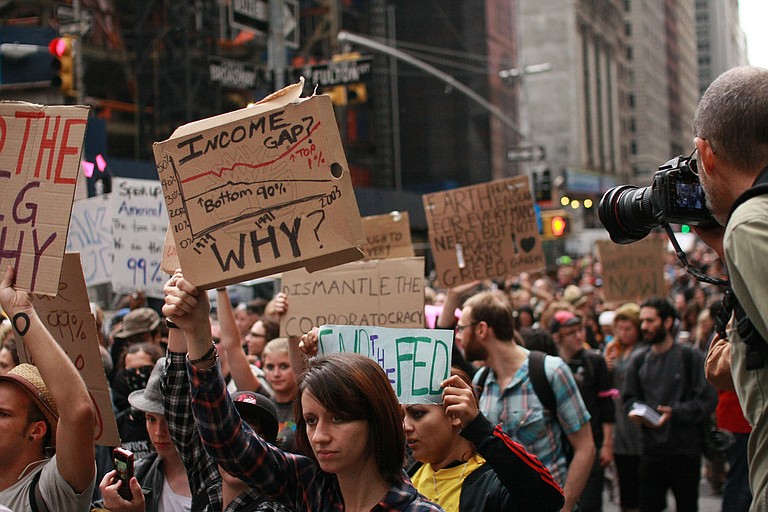Incomes are low in Mississippi, but top income earners do a little better in nationwide comparisons, reflecting an income gap that's among the widest nationwide.
Monday, September 15, 2014
JACKSON, Miss. (AP) — Mississippi is one of 10 states most reliant on sales taxes as a share of revenue, according to a new Standard & Poor's report that says that such states may be particularly susceptible to an ever-widening income gap dragging down state tax revenues.
Analysts with the credit rating agency believe rising inequality is also stunting overall economic growth.
State revenue growth in Mississippi has slowed markedly since 2000, the S&P report found, dropping from 7.22 percent annually in the state's boom decade of the 1990s to about 3.5 percent a year since.
While state revenue rose 20 percent from the 2010 budget year through the end of the 2013 budget year, much of that was driven by individual and corporate income tax collections, according to the Mississippi Department of Revenue. Sales tax collections have grown more slowly.
The increases in income taxes may come in part from strong gains in investment income. The S&P report also warns that state revenues are becoming more tied to volatile financial market ups and downs.
"As income inequality has risen over time, the overall mix of personal income has shifted in favor of capital gains and away from labor sources," the report said. "Those at the top obtain more of their income from capital gains, which on the whole, fluctuate much more than income from wages."
A 2012 report by the Center on Budget and Policy Priorities found that inequality between the top fifth of Mississippi households by income and both the middle fifth and the bottom fifth increased more than any other state from the late 1990s to the mid-2000s. The top 20 percent of households saw income rise 19.1 percent during the period, while the middle 20 percent saw income fall 5.1 percent and the bottom 20 percent saw income fall 17.3 percent.
In 2012, the Census Bureau estimated that the bottom fifth of Mississippi households had income averaging $8,044 a year, while the middle fifth had income averaging $37,235 and the top fifth had income averaging $136,553.
Incomes are low in Mississippi, but top income earners do a little better in nationwide comparisons, reflecting an income gap that's among the widest nationwide. While average incomes of each of Mississippi's bottom four quintiles ranked last among the 50 states in 2012, the top quintile's average income ranked 48th. The top 5 percent of households in Mississippi earned $241,218, ranking 46th.
The state's tax system, though, taxes all income over $10,000 at the same 5 percent rate, meaning highest earners don't pay higher tax rates, as they do in some states.
Studies suggest that the richest households spend less on the sorts of purchases that are subject to sales taxes, meaning reliance on sales taxes may capture less of the income that's shifting to higher-income households.
Overall consumer spending grew more slowly in Mississippi than in any other state in 2012, reflecting the state's slow recovery from the recession, Census figures found. Consumer spending in Mississippi grew strongly from 2005 to 2008, driven by the recovery from Hurricane Katrina. It nose-dived in the recession year of 2009, falling 2.5 percent on a per-capita basis. Mississippi's recovery since then has lagged the nation. Per-capita personal spending rose 10.7 percent nationwide in 2010 through 2012, while it only rose 8.2 percent in Mississippi.
Also dragging down growth of consumer spending and sales taxes in Mississippi — the state currently has the highest unemployment rate in the nation.

Comments
Use the comment form below to begin a discussion about this content.
Sign in to comment
Or login with:
OpenID